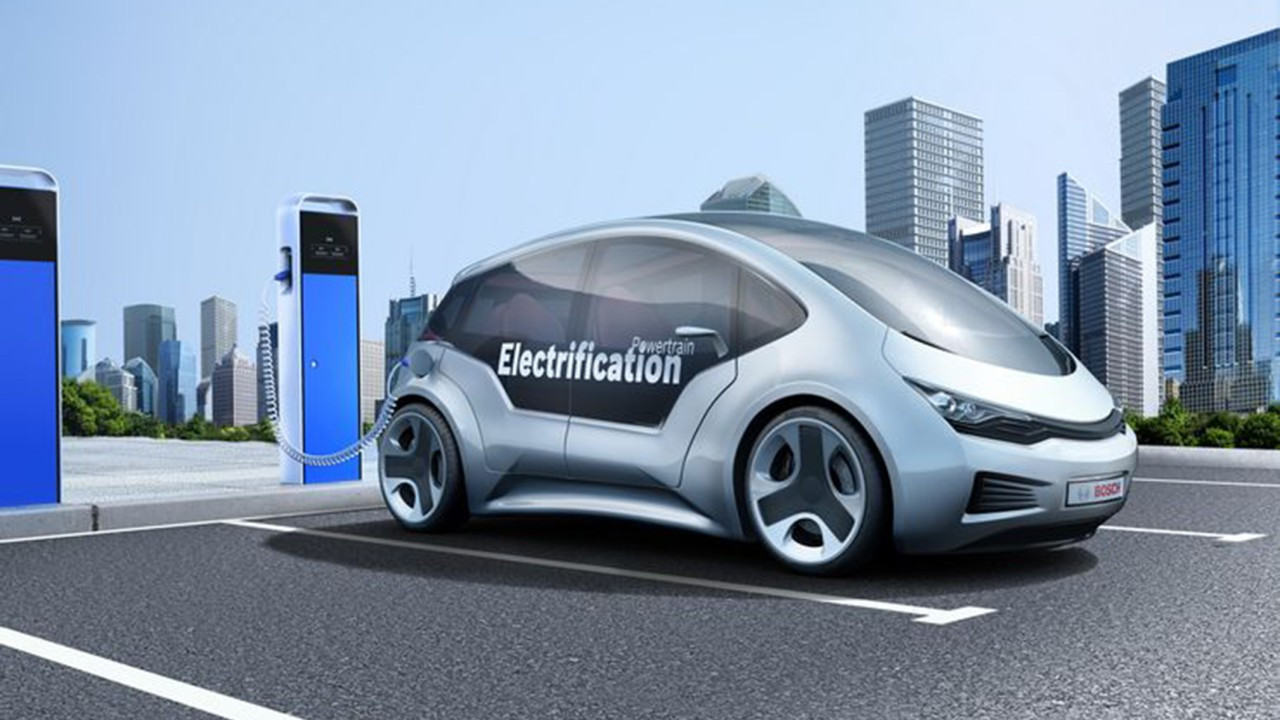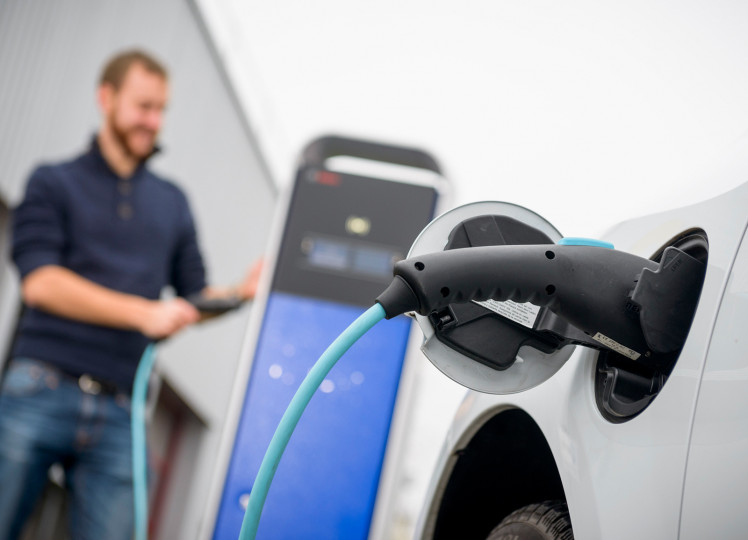Stuttgart, Germany – Quickly renting a car by app is something that nearly two million people already do in Germany alone, and the number of car-sharing users is on the rise. In this growth market, Bosch is launching a new sharing service for electric vans. Together with toom, a subsidiary of the German retail group Rewe, the company will be testing the service at hardware stores, which is precisely where there is a demand for vans with sufficient space to carry heavy and bulky purchases. “Bosch is growing with digital services for urban mobility. A service for sharing electric vans has huge potential for growth,” says Dr. Rainer Kallenbach, president of the Connected Mobility Solutions division at Bosch. With more than 330 stores, toom is one of the top providers in the German home-improvement industry. From December 2018, it will only take a few clicks for customers at five selected stores to directly book an electric van on site, and quickly and simply take stone slabs, balcony plants, and paint pots home with them. “As a company committed to sustainability, we are always eager to constantly improve our contribution to environmental protection. We’re therefore very pleased that we can now offer our customers an eco-friendly way of taking their purchases home,” says Wolfgang Vogt, toom’s managing director for finance and personnel. Bosch is already well versed in the sharing services business, as demonstrated by Coup, its rental service for electric scooters. Since its launch in 2016, Coup has constantly expanded, and now has a fleet of 3,500 scooters in Berlin, Paris, and Madrid.
Electric fleet for hire
In Germany, one in every ten shared cars now has an electric motor. In its Coup and van-sharing schemes, Bosch has opted exclusively for electrically powered vehicles. “Fully electric driving is ideal for urban mobility – whether that means downtown delivery traffic or individual mobility in major cities,” Kallenbach says. The van-sharing service will initially be offered in Germany, at hardware stores in Berlin, Frankfurt, Leipzig, Troisdorf, and Freiburg. At these stores, charge spots are already in place for the small electric vans, which are provided by StreetScooter. Bosch supplies the powertrain components for these vehicles. The company believes that shared electric vans have scope for application outside the hardware-store sector: if the new sharing service proves popular, Bosch plans to expand it to include other partners, whether these be other toom stores, furniture stores, supermarkets, or electronics stores.
Say goodbye to shopping stress
Car sharing has long ceased to be a niche market, as indicated by the sector’s rapid growth: by 2025, the market is projected to have as many as 36 million users worldwide (source: Frost & Sullivan). More and more users, especially in big cities, are taking advantage of app-based services to reserve a vehicle at any time, then climb right in and drive off. The great advantage of sharing van is that it also offers a solution for the transport of large and bulky purchases. Anyone who finds themselves needing a way to transport their hardware-store purchases can use the new service to reserve a roomy electric van, either a few hours in advance or at the last minute when making the purchase. Vans can be returned to the same station that the shopper picked them up from. The great advantage here is that users pay a flat hourly rate that includes mileage and battery recharging, an arrangement that is often less expensive than the classic car rental. In addition, the entire process from rental to return is completely digital – with no tedious paperwork.
Mónika Hack
+36 70 510 5516
Mobility Solutions is the largest Bosch Group business sector. According to preliminary figures, its 2017 sales came to 47.4 billion euros, or 61 percent of total group sales. This makes the Bosch Group one of the leading automotive suppliers. The Mobility Solutions business sector pursues a vision of mobility that is accident-free, emissions-free, and stress-free, and combines the group’s expertise in the domains of automation, electrification, and connectivity. For its customers, the outcome is integrated mobility solutions. The business sector’s main areas of activity are Injection technology and powertrain peripherals for internal-combustion engines, diverse solutions for powertrain electrification, vehicle safety systems, driver-assistance and automated functions, technology for user-friendly infotainment as well as vehicle-to-vehicle and vehicle-to-infrastructure communication, repair-shop concepts, and technology and services for the automotive aftermarket. Bosch is synonymous with important automotive innovations, such as electronic engine management, the ESP anti-skid system, and common-rail diesel technology.
The Bosch Group is a leading global supplier of technology and services. It employs roughly 402,000 associates worldwide (as of December 31, 2017). The company generated sales of 78.1 billion euros in 2017. Its operations are divided into four business sectors: Mobility Solutions, Industrial Technology, Consumer Goods, and Energy and Building Technology. As a leading IoT company, Bosch offers innovative solutions for smart homes, smart cities, connected mobility, and connected manufacturing. It uses its expertise in sensor technology, software, and services, as well as its own IoT cloud, to offer its customers connected, cross-domain solutions from a single source. The Bosch Group’s strategic objective is to deliver innovations for a connected life. Bosch improves quality of life worldwide with products and services that are innovative and spark enthusiasm. In short, Bosch creates technology that is “Invented for life.” The Bosch Group comprises Robert Bosch GmbH and its roughly 440 subsidiary and regional companies in 60 countries. Including sales and service partners, Bosch’s global manufacturing, engineering, and sales network covers nearly every country in the world. The basis for the company’s future growth is its innovative strength. At 125 locations across the globe, Bosch employs some 64,500 associates in research and development.
Additional information is available online at www.bosch.hu, iot.boschblog.hu, www.bosch.com, www.iot.bosch.com, www.bosch-press.com, www.twitter.com/BoschPresse



